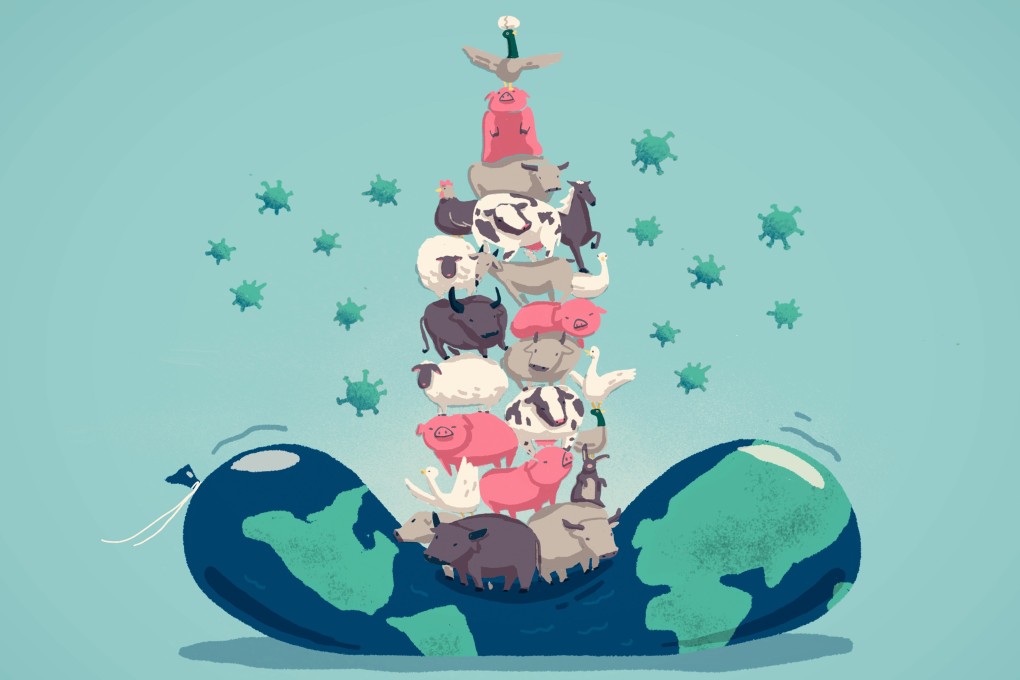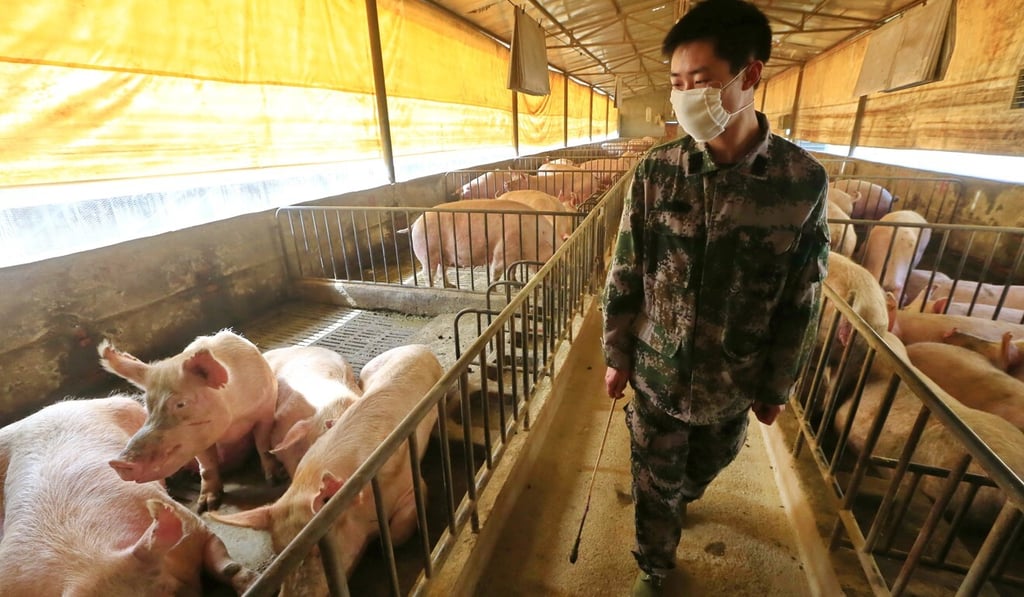Industrial farming of livestock a ticking pathogen bomb, scientists say
- After African swine fever and the coronavirus, Chinese authorities plan to plug holes to control diseases in animals, but experts say it’s a global problem
- They warn that the risk of viruses spreading and mutating in large-scale, high-density farms is not being adequately monitored

Industrial farming of livestock may offend the sensibilities of many people, with animals crushed into pens where they are barely able to stand up, among other distressing images. But some scientists warn such methods are also breeding grounds for mass production of new diseases.
Three years before the virus that causes Covid-19 started making people sick in China, another novel coronavirus began circulating in the southeast of the country. It was fatal, but its victims were 25,000 piglets, not humans.

In addition to a ban in February on trade of wildlife for human consumption, China said it would revise or enact several laws related to the control of diseases in or linked to animals over the next two years. Some regulations, like those updating the animal epidemic prevention law, would be introduced “as soon as possible”, said Zhang Yesui on May 21. Zhang is the spokesman for the National People’s Congress, the country’s legislative body.
China aims to plug the holes that experts say have escalated past problems – low standards of biosecurity, lack of oversight and responsibility, as well as local government cover-ups of outbreaks. Biosecurity covers methods to prevent disease outbreaks in animals as well as to protect crops from infections and pests.
